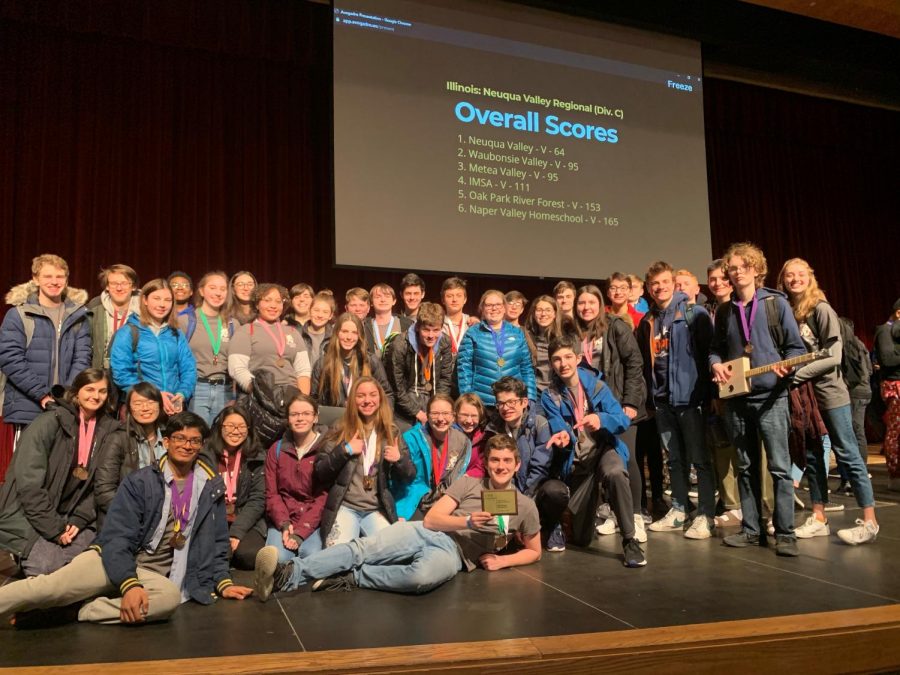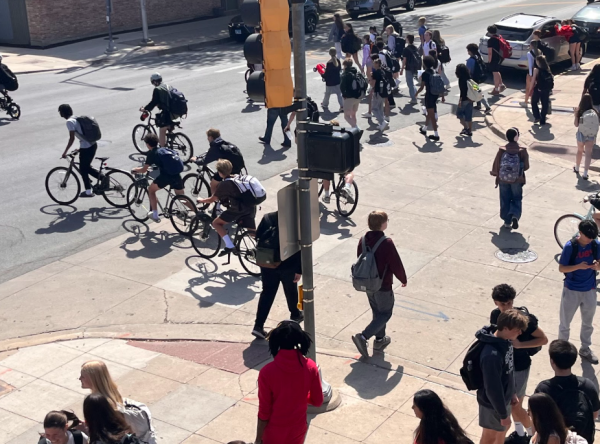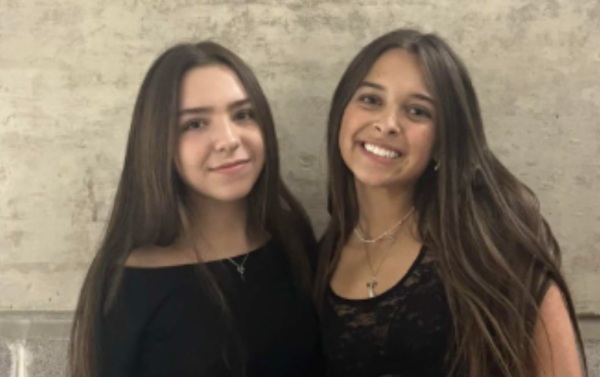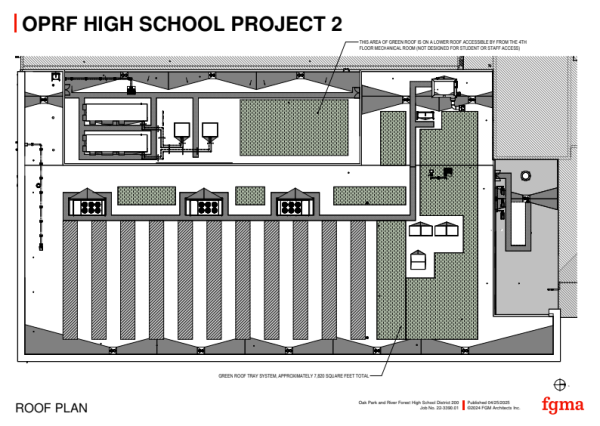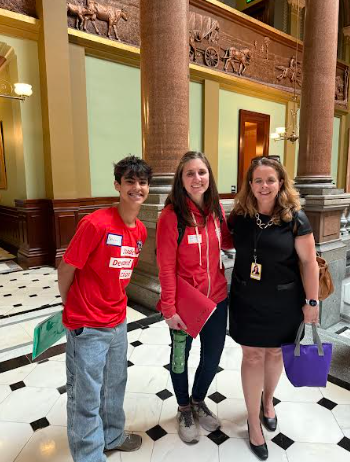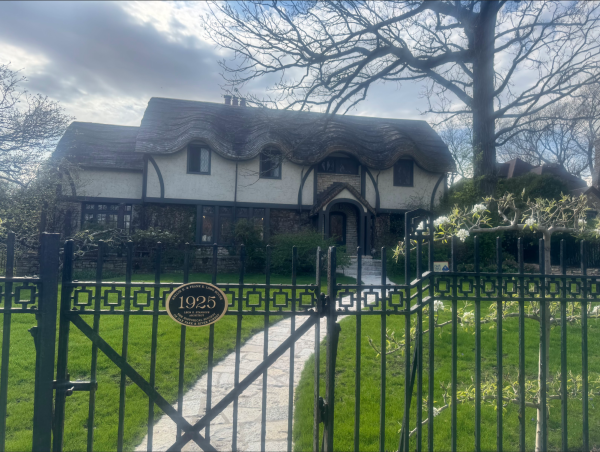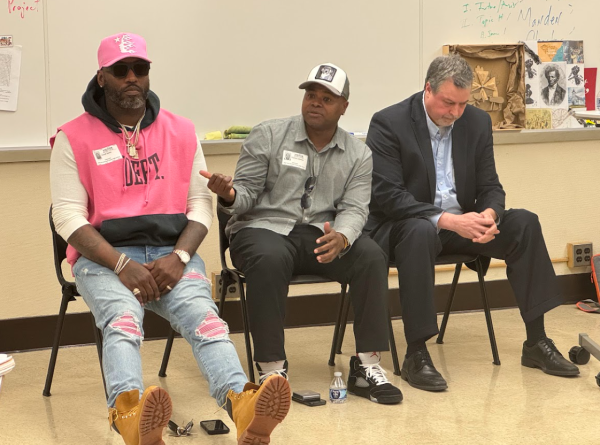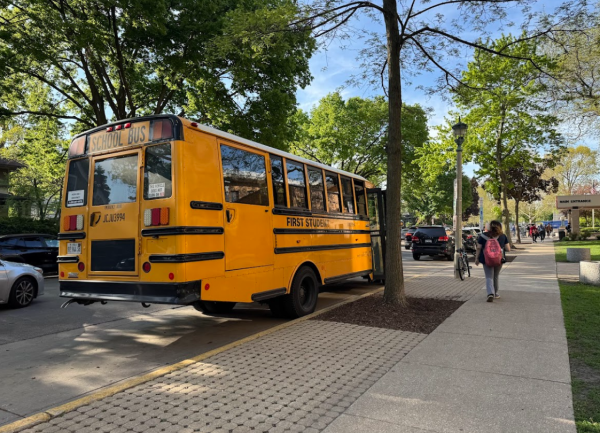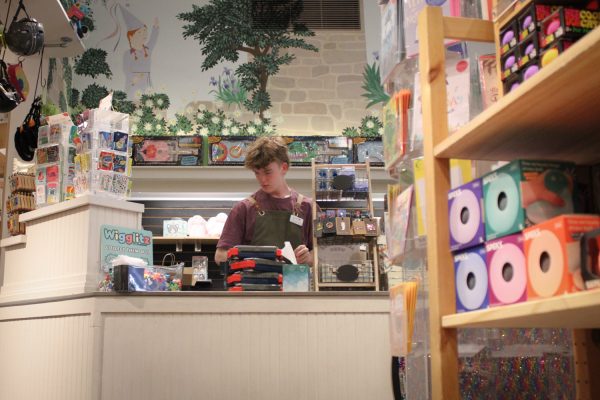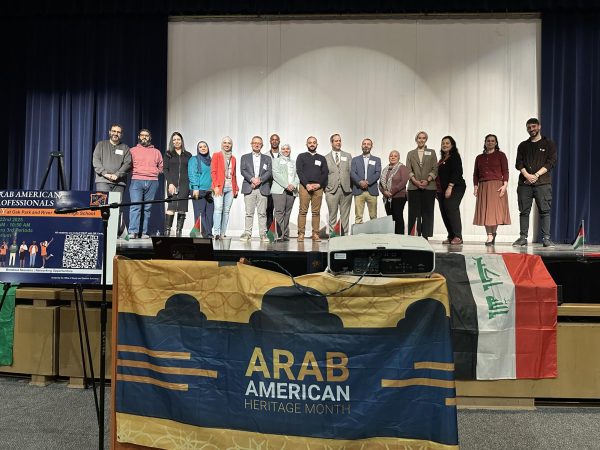Sci-Oly gears up to compete
Last year, Science Olympiad won fifth place at regionals, and made it to state for the first time in OPRF history
Shortly after the OPRF Science Olympiad team finished in fifth place at Regionals in March of 2020, qualifying for the Illinois Science Olympiad State Tournament for the first time in school history, the lockdown happened. Eventually, the State Tournament was cancelled.
“It was pretty crushing,” said OPRF Science Olympiad captain Jackson Tanner, “but we tried to keep our heads held high, and we are now hoping to (make it to State) again this year.”
Science Olympiad is an interscholastic competitive organization where students compete against other schools in 23 different events, with each event covering a different topic in science. Two or three students per school compete together in each event, and each student competes in around three events.
In a normal year, Science Olympiad would meet from 3:11 until 4:30 every Monday and Wednesday. Students would meet with partners/groups to study for their events by writing up notes or building devices.
“We hang out, do some team building, work on our events together, learn about certain aspects of science you’ve probably never heard of before,” said Tanner.
During the school year, students participate in multiple competitions. The year begins with two invitationals, in which the team can “see who’s doing well in certain events, who might be really good at another event. It’s just getting a footing for the year,” said Tanner. After the two invitationals, schools participate in the regional competition. The top six teams at Regionals move on to the State Tournament, held at the University of Illinois Urbana-Champaign.
On a competition day, students would wake up extremely early to make it to the competition by 8 am, when first tests begin. Each school is assigned a homeroom where students wait until they either take a test or test devices for the build events.
“There’s people lying around the room, cramming for events,” said Science Olympiad co-sponsor Katie Kralik. “There’s people playing playing cards. There’s people drawing on the boards; usually one of the chalkboards has people quizzing each other for code busters, writing codes on the board and trying to break the codes. There’s people doing last-minute tests on their cars that they’ve built out in the hallway; you have to be really careful when you walk… (At the end of the day) there’s an award ceremony, so we pile into the auditorium or the gym. They announce the top four or six places in each of the 23 events… And then we come home.”
After the successes and disappointments of last season, the Science Olympiad team has high hopes for this year. While it’s a very different experience online, this school year’s season has been able to continue online through Zoom practices and online competitions.
Students compete in meets on the Science Olympiad website. “The partners log in from their two separate houses and they both get the test at the same time, and a chat window opens so they can work together, but they’re also allowed to set up a Zoom or a FaceTime,” said Kralik. “So in that regard, the test part hasn’t changed much. It does mean that the day is less exhausting, but also less fun.”
The team reconvenes in an OPRF-only call a few times throughout the day, to touch base and socialize between events to make it feel a little more normal.
“The invitationals were good,” said team member Em Ryan. “They were not as fun as they would have been in person, but it was still fun to participate in events and to zoom with everyone during the day.”
Science Olympiad is currently preparing for regionals in March.
“I’m a little nervous for regionals, but I am mostly excited,” said Em Ryan. I’ve been working hard at all of the events I’m in!”
Her twin and fellow team member Abby Ryan says she is also excited, “I don’t want to jinx it, but I think we’ll do well and might even get to state.”
“This year is obviously not ideal for a lot of reasons. We’d all love to be able to be in the classroom goofing around with each other. It’s definitely a very different experience from what we’ve gone through so far, but we’re making it work digitally,” said Tanner.
It is difficult to move this tightly-knit group of friends to a virtual setting, but the coaches and students are trying their best to keep the community alive.The OPRF Science Olympiad team is a group of students with a wide range of interests and personalities. On a recent Zoom practice, for example, one student gave an impromptu concert, in which she belted out an original song called “Fly Away” while playing ukulele.
“It was challenging to switch online, and it definitely is more difficult to socialize,” said Em Ryan. “Normally, we would all be in the same room working on events, so people would come over and start talking to you, but a bit of that is lost in breakout rooms. Despite this, we still talk and make jokes and have a lot of fun!”
“The Science Olympiad community is really fun,” said Abby Ryan. “It’s a group of a bunch of really talented, kind, and passionate people doing what they love, and so we all get along really well. In the beginning of remote, the meetings seemed sort of static and stiff, but lately we’ve been able to bring back the dynamics again.”
“We have so many different people with so many different interests,” said Tanner. “Not everybody wants to grow up and become a neuroscientist or a mechanical engineer; we’ve got people who are musical, who are artists. The thing is you don’t have to be some science genius to be able to be a part and be successful on the team. You can come in as whoever you are, and we’re accepting and ready to have a fun time together.”

